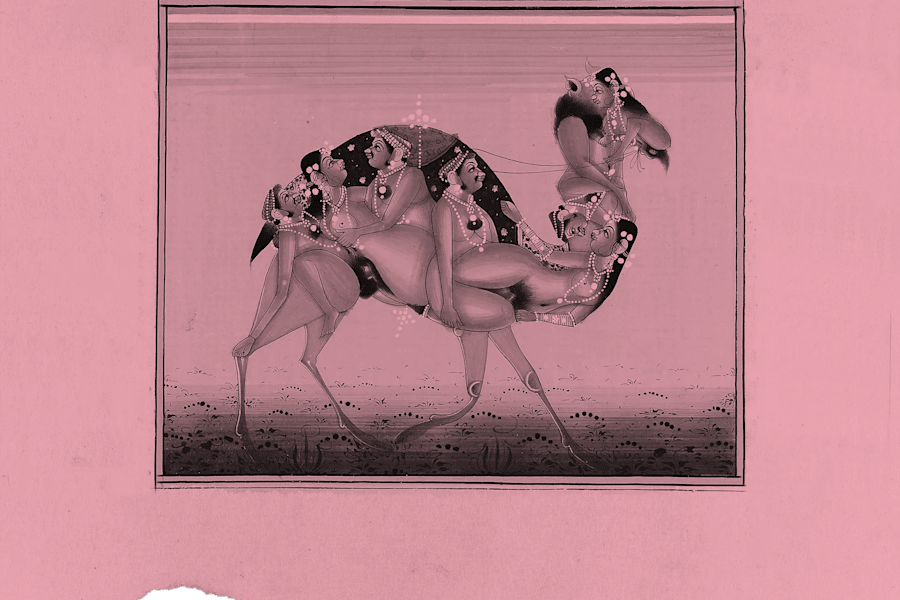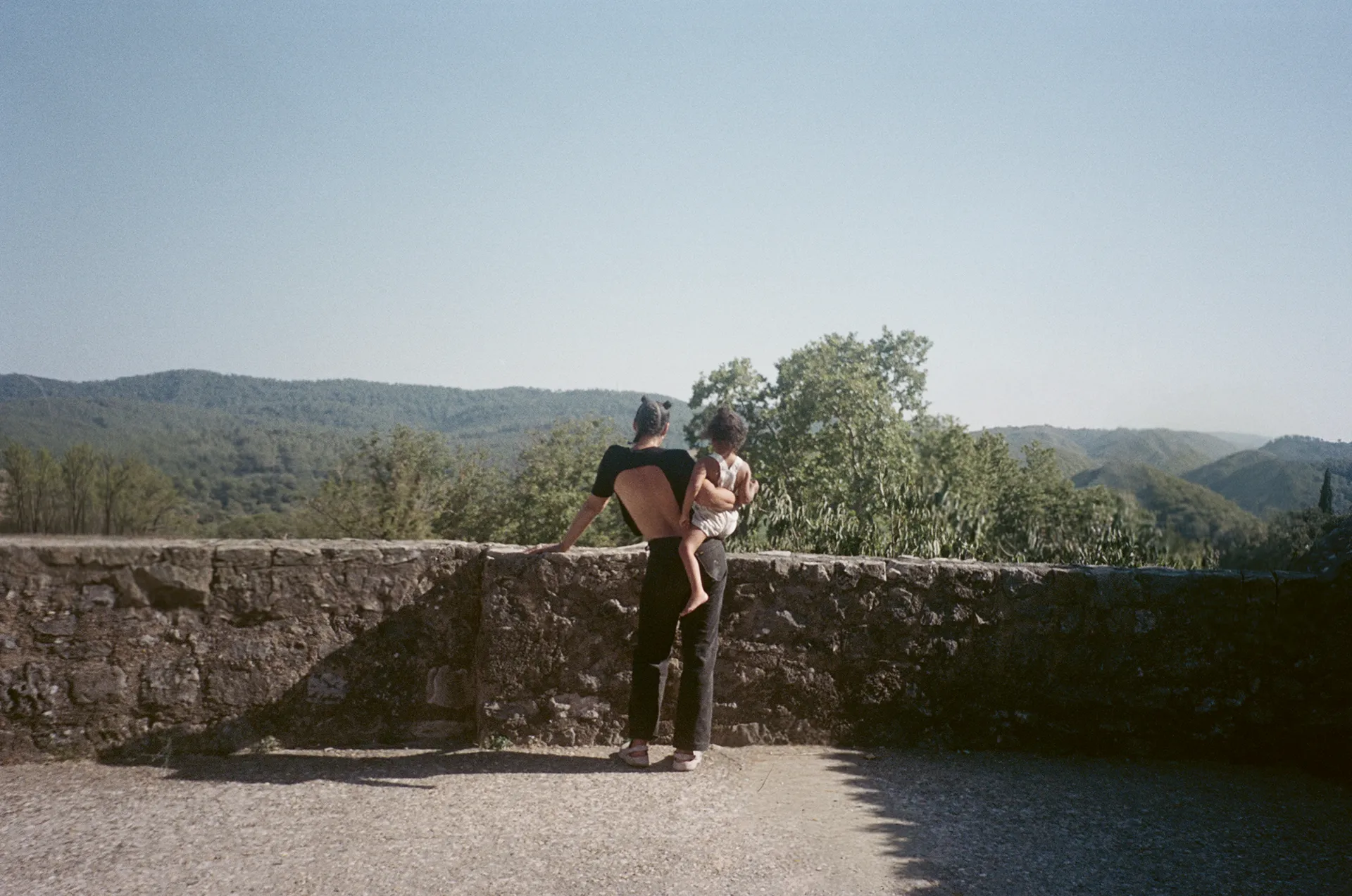
Photography by Ashley Helvey
I have never known how to make decisions. I prefer to accumulate intensities until a turn of events forces itself on me as if outside my control. This was not good enough for the situation in which I found myself. I was single and broke and it was 2020, a strange, bruising, exhilarating time. I had always assumed I would have children, but I had not.
My social context was unusual in that having children was not a given. There were many other sources of purpose, from art to politics. When a psychic told me I would have kids, I repeated the prediction to friends as a ridiculous joke. But the repetition revealed more than the ridicule; I felt the absence of the children I didn’t have. Approaching the end of my thirties, I finally dragged the question into the light. I had arrived at a crossroads signposting two lives, one in which I would have a child and one in which I would not. This was a non-space that I gave a rough geography by calling it indecision. At the time, I leaned on other people’s writing about this experience, and now I offer this contribution to its minor literature.
Decision might not really be the most precise way to think about what was happening for me then. It seems in retrospect like the prodromal stage of mothering, an inventory of the self that softened me up for the minor-major transformations of parenting. With any life-altering choice, there is a process of orienting yourself towards the new version of yourself—to put it dramatically, dying enough to be reborn. I found analogies between our experiences with friends going through gender transition, or treatment for serious illness. These were processes of becoming accountable to our desires, if only the desire to live.
I had the feeling of having snapped out of a long, disabling delusion of eternity and woken up to the realization that I had forgotten to have a child, like sleeping through an alarm and missing an important flight. “We are not immortality machines,” said an acupuncturist I consulted, and in fact I had not known this before. My time was now measured by a half mythic, half real hourglass stupidly called a “biological clock,” a phrase unintentionally implying that aging proceeds like the cyclical hours of a day and youth might come around again like lunchtime. Despite this new sense of time, it was hard to cross the threshold into trying to conceive. I was as much afraid of the irrevocability of motherhood as I was afraid of never having the experience. I forced myself into action by telling myself it was probably too late for me anyway, helped along by panic-inducing pseudo-science suggesting that ovarian function ground to a halt around 35.
Indecision is a subby tendency, a refusal of sovereignty over your own life, but like submissive desire the goal is to get what you want without asking. What did I want? I protected myself from the full force of my fear that I would not be able to have a child with my ambivalence about becoming a parent, and I protected myself from my fears about becoming a parent by telling myself I might as well go ahead and try because it would probably never happen. This complicated structure scaffolded my attempts to conceive, but it cut me off from my instinctive life. I remained in the fog of my indecision for so long, even weeks into the pregnancy, that I had to arrive at the decision multiple times after it was made.
The question of whether or not to become a parent was, in a way, beyond the reach of reason. I remembered this feeling from a previous, terminated pregnancy in my twenties. Then, I had felt that the difference between having and not having a child would produce two versions of myself so absolutely different that they would be effectively invisible to each other. One would not be able to judge the other. There was no standpoint, therefore no logic on which to base a choice. That pregnancy was an accident. “I can’t believe you can get pregnant from sex,” I kept saying to my friends, not entirely joking. Over a decade later, as I tried hard to get pregnant, I suffered from the feeling that it was more dignified, less morally dubious to have a baby completely by chance. That way, you didn’t have to ask yourself insanely abstract questions about your fitness to parent and the meaning of birth. These other, accidental parents and children stand side by side in front of the blank face of fate. No one is more or less to blame. Yet I had also managed to turn the accidental pregnancy of my 20s into an existential drama, through the nullifying power of indecision. Nothing could pass through the gateway of my ambivalence about everything. By trying to say both yes and no to all possible options, I lived in an arid maybe.
Time, like a uterus, expands to fit what’s inside it.
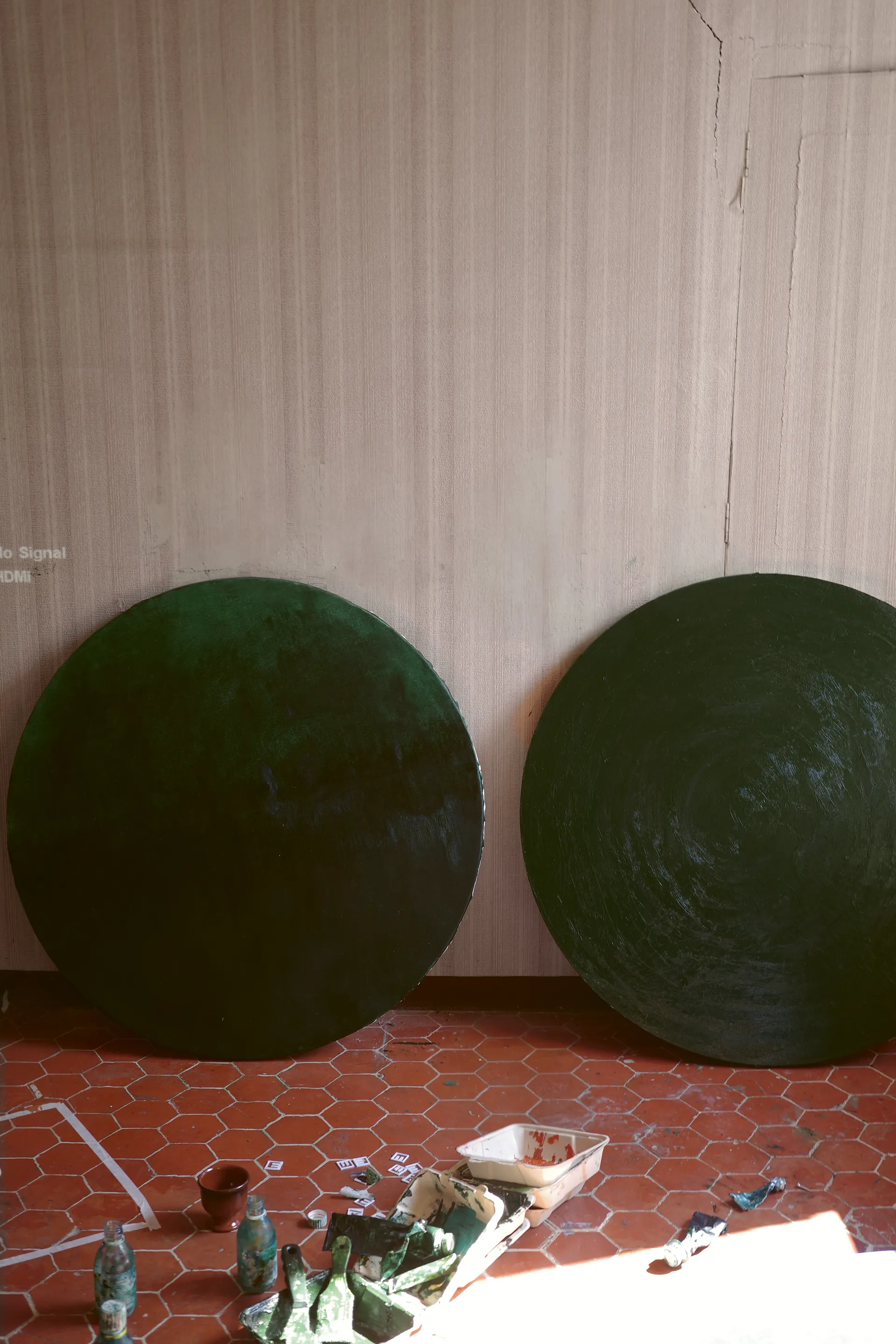
Photography by Ashley Helvey
I compulsively read whatever perspectives I could find online by people who regretted having children. No one who didn’t want a child would have read so much about the experience of having children. I was looking for an armature to make conscious a decision that I had already unconsciously made. Regret is a popular topic in contemporary writing on motherhood, sparkling with the static of a broken taboo. The only comparable regret discourse I can think of is the liberal media’s desire to flush out people who regret voting for Trump. I recall very little of what I read, but I remember a comment by a woman who said she did not relate to regret discourse because before her child was born she would spend hours looking mindlessly at her phone, and now her days were full of the meaningful labor of childcare. This comforted me because I too had empty time to fill. Time, like a uterus, expands to fit what’s inside it. Children, little human clocks, youth coming around again like lunchtime, illuminate the stretchy, incomprehensible texture of time. The single most common thing parents of older children say to me is, “Enjoy it, it goes by so fast!” Everyone says it in the same tone, nostalgic and conspiratorial, stunned by the fact of finitude. Becoming a parent is like joining a subculture of the majority. Like queer culture, it is structured around the illegibility of love, but it’s not remotely queer, it’s the least queer love of all: the heavy paste of parenting’s social form completely conceals its destabilizing, romantic heart.
Regret hallucinates a bridge between what does and does not happen, an anchor securing the unlived life to the lived one. The regret I experienced after my earlier abortion stemmed not only from having made what I thought was a wrong decision, but from my refusal to acknowledge the decision’s total reality. The regret allowed me to live two lives, the life of reality, in which I was not a mother, and the life of regret, in which the baby was still at stake, still an open question and, in a way, I was its mother. The non-baby of my regret would now be old enough to vote, and they have left home, but they still visit sometimes, especially now I start to realize that I will most likely only ever have one child. And I regret that. “One is better than none,” a stranger I confided in at a playgroup once told me, as we watched a room full of babies play. I repeat the phrase to myself often, as a talisman of my narrow escape from the annihilating power of my indecisiveness.
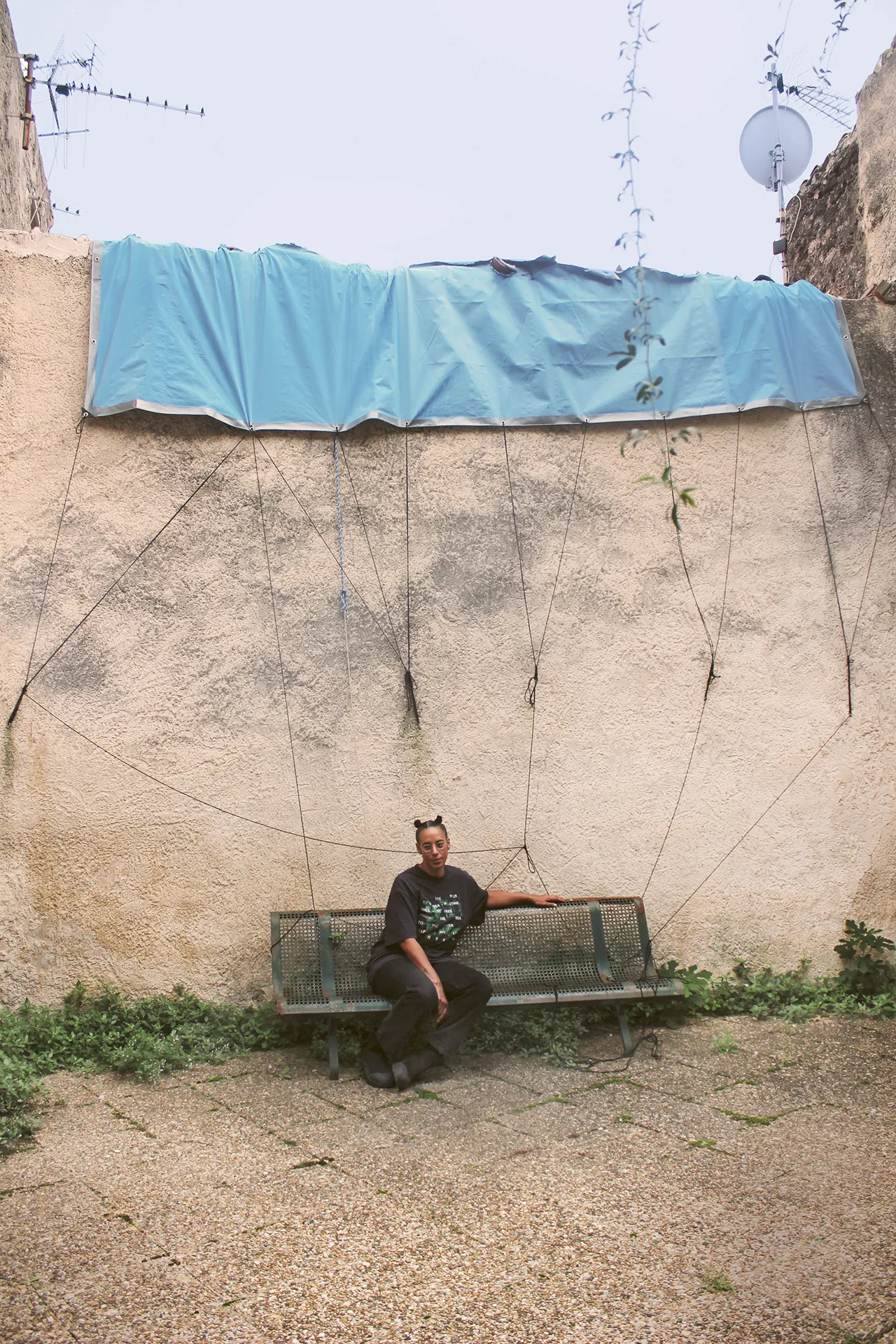
Photography by Demi Latz
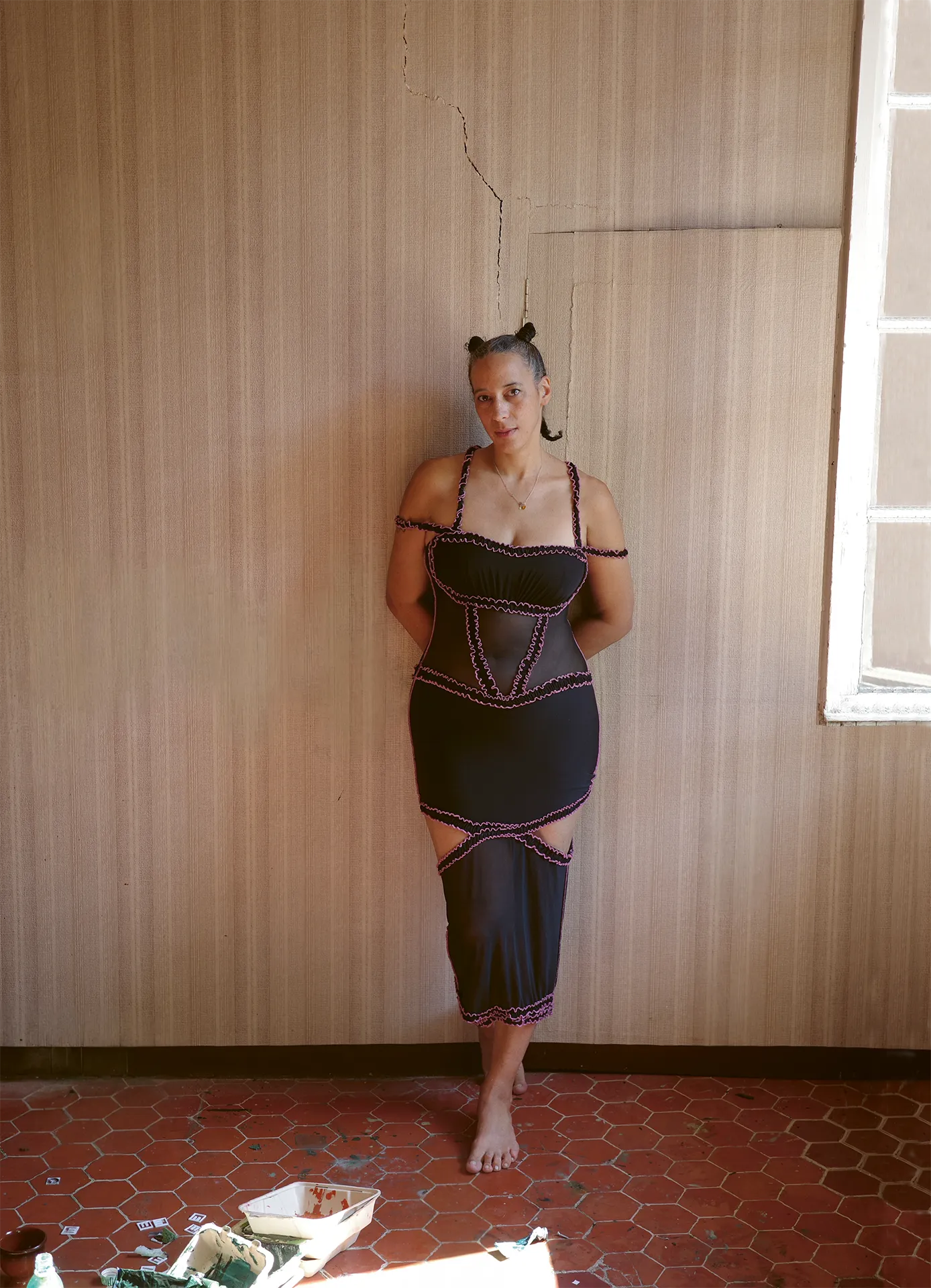
Photography by Ashley Helvey
Because regret and indecision are as much character attributes as signs of a decision’s importance, the possibility of regret kind of homogenizes different choices rather than distinguishing them. I think often of a mysterious statement on a Myers-Briggs personality test, with which the personality is invited to agree or disagree, “The best decision is one that can easily be changed.” If so, then having a child is the worst decision. You can never not have had a child. But the decisions to which the criteria of easy change could possibly apply are all pretty trivial. “Best,” here, would mean something like “least impactful.” As a young adult, I think I did have the fantasy that I could go through life without being really affected by it. But when I didn’t make choices, they were anyway made for me. As a friend said to me, sitting on a bench in Seward Park by the fountains listening patiently as I palpated my thoughts looking for a decision, “Life is partial.” The oracular statement hovered in the air, getting soaked by fine, municipal droplets.
Like emotional engineers, the indecisive counterbalance any force in one direction with an equal and opposite force in another. However much I tormented myself with fear of childlessness, I contrived to be just as anguished by the belief that if I became a single parent, I would never have a romantic relationship again. This was ridiculous and not true. Everyone told me this, but I didn’t believe them. If you are suffering from a similar fear and would like to hear a happy ending, here you go: I met my partner when I was six months pregnant. Some of my fears were real, however, or I made them real. My fear that having a child would irrevocably re-entangle me in my family of origin came true, though differently than I imagined. My fear that I would end up leaving New York because of having a kid came true, though differently than I imagined.
And my daughter is more wonderful than I imagined. I wish there were a way to make this sound less pat, less inevitable, more like how it actually feels. Perhaps regretting a child is more interesting, in a kind of pallid, gothic way, than the unremarkable fact that children are wildly lovable. Anyway, in most cases, the regretful parents of the internet were at pains to make clear that they loved their children. The child, once born, is extraordinarily real, as little subject to regret as anything else that feels permanent and factual, like the sky. It was not exactly the child’s birth that was regretted, but the compulsory, unremarkable sacrifice that parenting entails. Children are good, but the contemporary circumstances of parenting, in their massive amplification of social atomization, are often not good. But the regret is not reducible to any one cause. It is something to do with love. The brute force of love in a world in which love for children is given endless saccharine lip service but officially means nothing.
Are you here because you are looking, like I was, for advice? Unfortunately—this is, in a way, the problem—whatever I could say about parenting is trapped in the soundproof box of cliché. Everything you have heard about having kids, good or bad, is true. Children are blessings and bring blessings. They are exhausting and raise the stakes of all your limitations and flaws to vertiginous heights. Love for children is Love, the romantic kind, the song kind, the ordinary kind. Parenting resembles religious practice in the way it links the broad sweep of the sacred to the smallest of everyday tasks. The reality of my daughter is beyond my wildest dreams and dominates every mundane detail of my life. Dumbly, like water proud of being wet or a bird that thinks it invented flight, I am amazed that I am her mother.
In the era of my indecision, I swung between two visions of my life: romantic love and maternal love, as if the two were mutually exclusive. My belief in their fundamental incompatibility—as severe and obscure as the incest taboo to which it was subterraneanly linked—was in fact the source, rather than a side effect, of my eventual decision to throw myself into the unknown and start trying to conceive alone, without a partner. And my rebellion against that deadening belief is what made it possible for me to fall in love while pregnant. It had not occurred to me that one thing I had not been brave enough to do—have a child—could relate to another thing I had not been brave enough to do fully—have a sustained intimate relationship in which I allowed myself to be made uncomfortable, to be changed, by my desire for the relationship’s survival.
Having a child was the only decision that I really treated as one, that I struggled with consciously. In retrospect this laborious process seems absurd. Did I think I was conceiving a concept? My daughter is real and herself. Part of the complicated freedom of my place and time, my context—queer urban cultural workers—was that it moved questions previously decided by the social into the field of individual choice, where they became less oppressive but also more excruciating. The core of my desire for a child was that I wanted to have a basis beyond myself for my choices, an anchor, a reason. I was tired of struggling to please myself. Be careful what you wish for! Conceiving my baby began a process that transformed every aspect of my life.
These transformations have landed us in a tiny village in France, almost a mirror opposite of my previous life in New York. If this sounds idyllic, it often isn’t, but what is? Here, almost everyone has kids, because—minus the historically astonishing elaborations of metropolitan social innovation—that is what life is, a process that more often than not results in children. Part of my absolute foreignness here is the curse of my indecision, my belief in a perfectible life: Should we move closer to my family? Should I do this or that kind of work? “What would you do if you could do whatever you wanted?” I asked a village acquaintance. A question imported from another planet, I realized as soon as it was out of my mouth. “I can’t let myself think like that,” she said. Only in this new light can I clearly see my obscene injury: I am luxuriously, painfully pierced by the problem of partiality, of the necessity of living only one life. But one is better than none.


